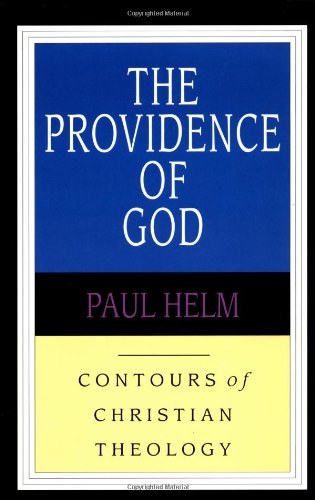A Brief Book Summary from Books At a Glance
By Steve West
About the Author
Paul Helm is a teaching fellow at Regent College, and the author of numerous works of philosophical theology.
Introduction
This contribution to the Contours of Christian Theology series examines the subject of God’s providence from a theological and philosophical perspective. Helm argues for a Reformed understanding of a no-risk model of providence where God knows the future and directs every specific event for his own purposes and good ends. This book explores the metaphysical and moral dimensions of the issues involved, as well as provides some application for the believer.
Table of Contents
Introduction
Chapter 1 Orientation
Chapter 2 Providence: Risky or Risk-Free?
Chapter 3 The Theological Framework
Chapter 4 Providence in Creation, Fall and Redemption
Chapter 5 Providence and Guidance
Chapter 6 Prayer and Providence
Chapter 7 Providence and Accountability
Chapter 8 Providence and Evil
Chapter 9 Reckoning with Providence
Book Summary
Chapter 1: Orientation
God’s providence has been in operation all throughout history and will continue throughout all of time. “Providence” refers to how God provides (and what he provides, and to whom he provides). Christians believe that God cares for them and directs their lives. God cares for the smallest details of our lives, but is also guiding the entire cosmos toward his ends. God predestines and providentially guides all things. We need to keep in mind three contexts for providence: 1. Individual Christians; 2. The entire Church; and, 3. The whole of Creation. God preserves and sustains his creation. There are a number of individual ends that God aims to bring about, but they are all for the end of his glory.
The view that God controls his creation seems to generate many problems (e.g. the existence of evil): these issues cannot be examined in detail in this book, but some of them will be discussed in the following chapters. Methodologically, we need to construct our understanding of providence on the basis of Scripture. It is inevitable, however, that we will apply human reasoning to the data. We construct models, and we need to try to be exact in our formulations. Due to the differences between us and God, we will not be able to answer questions concerning how God controls all things, or why he does exactly what he does.
Chapter 2: Providence: Risky or Risk-Free?
A major point of debate amongst Christians is whether God’s governance of the world is risky or risk-free for Himself. Some believe that the future is open for God, and he doesn’t know infallibly what will occur (thus, he takes a risk in creating). We do not risk if we start events in motion and we know how they will end up. The risk view is often tied to God giving creatures libertarian free will. Although there are different ways of formulating the argument, the idea is that God cannot know the future because that would negate genuine creaturely freedom and relationships. God’s omniscience is taken to mean that he knows all that it is possible to know, but this doesn’t include the future free acts of responsible agents. In the risk view, God cannot decree any human action. We need to recognize that the Bible uses anthropomorphic language about God, and that God accommodates himself to us in communication, as Calvin helpfully articulated.
Some have tried to maintain both an indeterministic view of human freedom and a no-risk model of providence by appealing to middle knowledge. God’s “middle knowledge” is his knowledge of things that would or could have been, but which are not in fact actualized. The philosophical position known as middle knowledge combines libertarian freedom with. . .
[To continue reading this summary, please see below....]The remainder of this article is premium content. Become a member to continue reading.
Already have an account? Sign In
Buy the books

THE PROVIDENCE OF GOD, by Paul Helm